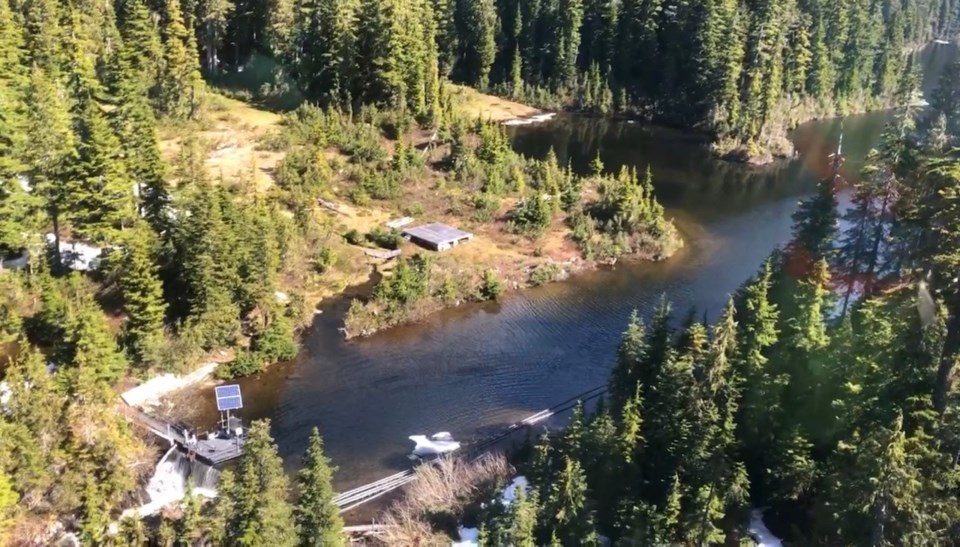If the warmer-than usual-weather conditions keep up, the Sunshine Coast Regional District (SCRD) could start enforcing more water restrictions before the end of the month.
In his monthly water supply update, general manager of infrastructure services Remko Rosenboom said the heat wave that hit the Coast at the end of June was “unprecedented” and led to the highest water use the SCRD has seen since 2014.
The demand created some challenges, he told the board at the July 8 infrastructure committee meeting, forcing the Chapman Water Treatment Plant to operate at or sometimes above maximum capacity.
“We were lucky enough that the heat wave occurred … early in the summer, while there was still sufficient flow in the [Chapman] creek for us to pull from,” Rosenboom said. If that hadn’t been the case, he added, there would have been the need to go to Stage 2 or 3 as an emergency measure.
Water use spiked on June 28 – as temperatures of 40.8 C broke local records – and use was even higher on June 29. Creek flow dropped “significantly” from about 5,000 litres per second in mid-June to around 300 to 400 litres per second. The drop is a result of the lack of rain since mid-June, Rosenboom said.
If current weather conditions continue, Rosenboom said Stage 3 is expected for the Chapman water system in late July. Without significant rainfall, the Eastbourne water system is expected to start Stage 4 restrictions in the next two weeks.
“The wells are going down rapidly at the moment,” Rosenboom said. “When water levels reach the bottom of the wells, that’s when Stage 4 is called.”
Since Stage 2 water restrictions came into effect for most of the rural areas on July 5, Rosenboom said they hope use will go down in July and August. Eastbourne has been in Stage 3 since June 28.
Reducing water use now could extend Stage 2 even into early August, he added, and may reduce the need to go to Stage 4. If demand does not go down, this season could look like 2018, when Stage 4 began on Aug. 31.
This June is drier than last year, when the average residential water use for the rural areas was more than 700 litres per day. In June 2021 – not including the heat wave – residential water use in rural areas was nearly 1,000 litres per day. Separated by rural areas, SCRD water users in Halfmoon Bay, North and South Pender Harbour, and Roberts Creek used around 1,100 litres per day. Elphinstone and West Howe Sound used slightly less than 1,000 litres per day, while the Egmont/Earls Cove area used less than 600 litres per day.
Since seasonal water restrictions came into effect on May 1, the SCRD has issued 23 warnings and one fine – 10 more warnings than this time last year.
Patrols began in June and will continue throughout the season. The only fine so far was issued to a resident who received warnings in previous years and was again watering when not allowed, Rosenboom said.
In early June, around 400 leak notifications were sent to residents and 38 per cent of those leaks were resolved as of July 6. Roberts Creek director Andreas Tize shared that he was one of the 400 to receive a notification.



